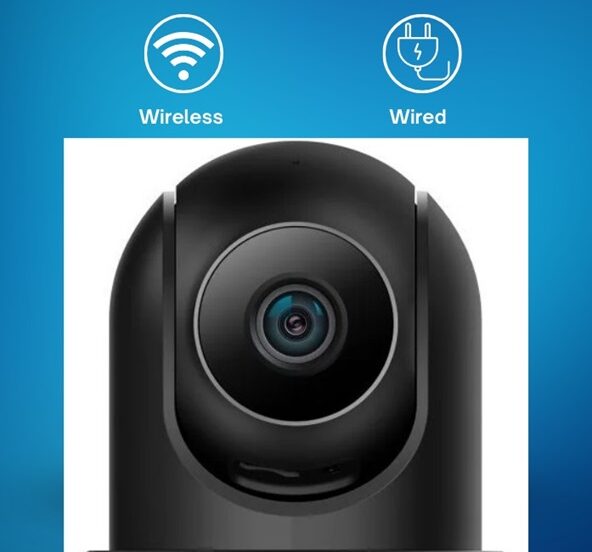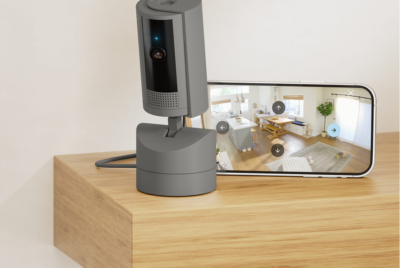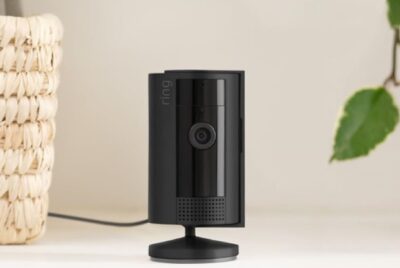Wired vs. Wireless Home Security Cameras
When it comes to safeguarding your haven and loved ones, a robust home security system is paramount. In today’s digital age, the choices are more diverse than ever before, and at the heart of this decision lies the choice between wired vs. wireless home security cameras. As someone deeply concerned about the security of my family and my home, I’ve looked into this topic extensively and can provide valuable insights into the definitions and differences between these two options.
Defining Wired vs. Wireless Home Security Cameras
Wired Security Cameras: Wired security cameras, also known as hardwired cameras, are connected to your home’s electrical system and use physical cables for data transmission. These cameras are typically installed by drilling holes for the cables and provide a continuous power source.
Wireless Security Cameras: On the other hand, wireless security cameras operate over Wi-Fi or other wireless connections, making them more flexible and easier to install. They rely on batteries or an external power source, depending on the model.
5 Crucial Differences: Wired vs. Wireless
1. Installation and Setup
Wired cameras require a more complicated installation process, often necessitating professional help. The drilling and cable routing can be quite intrusive. Wireless cameras, in contrast, are DIY-friendly, making them a fantastic choice for those who prefer to set up their systems independently.
2. Reliability and Stability
Wired cameras are typically more reliable because they don’t rely on batteries that might run out at inopportune times. They provide a continuous feed as long as the power supply remains uninterrupted. Wireless cameras, however, might experience signal interference or battery depletion, which could compromise their reliability.
3. Flexibility and Mobility
Wireless cameras are a winner in terms of flexibility. You can place them virtually anywhere within the Wi-Fi range. This adaptability ensures that you can reposition or add more cameras as needed. Wired cameras, with their cable constraints, lack this degree of flexibility.
4. Cost
Wired cameras tend to be more expensive upfront, mainly due to installation costs. On the other hand, wireless cameras might save you money initially, but they can incur higher long-term costs with battery replacements.
5. Security Risks
Both wired and wireless cameras are susceptible to hacking, but in different ways. Wired cameras can be targeted through physical tampering, while wireless cameras are more vulnerable to cyberattacks. It’s essential to take adequate security measures for both types.
Pros and Cons of Wired Home Security Cameras:
Reliability and Stability: Wired home security cameras are known for their reliability. They maintain a continuous connection to power and the network, ensuring uninterrupted surveillance. In the event of a power outage, wired systems often have backup options. This reliability is essential for safeguarding your family and home.
Installation and Setup: Installing wired cameras can be more complex than their wireless counterparts. It often requires professional installation, involving drilling holes and running cables. The initial setup can be daunting, but it pays off in the long run with a stable and robust security system.
Concealment and Aesthetics: Wired cameras are conspicuous due to the visible cables. While this can deter potential intruders, it may not be aesthetically pleasing. Proper concealment and cable management are essential for maintaining the visual appeal of your property.
Potential Limitations: Wired systems are less flexible when it comes to repositioning cameras. Adding or relocating cameras may require additional wiring, leading to extra costs. These limitations can be a drawback in certain situations.
Pros and Cons of Wireless Home Security Cameras:
Flexibility and Ease of Installation: Wireless home security cameras are incredibly flexible and easy to install. They run on batteries or can be plugged into outlets, eliminating the need for extensive wiring. This flexibility allows for quick and hassle-free setup, making them a practical choice.
Remote Monitoring and Access: One of the key advantages of wireless cameras is remote monitoring. You can access your camera feeds and receive alerts from anywhere with an internet connection. This feature is invaluable for keeping an eye on your home while away.
Potential Vulnerabilities: Wireless cameras may be vulnerable to interference and hacking. To mitigate this risk, it’s crucial to secure your network and cameras with strong passwords and encryption. Regular firmware updates are also essential for patching vulnerabilities.
Battery-Powered vs. Plug-In Cameras: Battery-powered cameras offer mobility and can be placed anywhere, but they require periodic battery replacement. Plug-in cameras offer continuous power but are dependent on electrical outlets.
Securing Your Home with a Hybrid Approach
To maximize both coverage and reliability, consider a combination of wired and wireless cameras. This hybrid approach offers the best of both worlds and can adapt to various scenarios.
Smart Features and Accessories
Explore features like motion detection, night vision, and storage options. Cloud storage provides convenience, while local storage offers enhanced privacy and security.
My Recommendations
Choosing between wired vs. wireless home security cameras depends on your specific needs and priorities. For those who value reliability and don’t mind the initial setup costs, wired cameras are a great choice. If flexibility and ease of installation are more appealing, wireless cameras are the way to go.
I’d recommend a hybrid approach. Use wired cameras for critical areas and wireless cameras where flexibility is necessary. This way, you can have the best of both worlds.
In conclusion, the choice between wired vs. wireless home security cameras boils down to your unique requirements and preferences. Both offer effective solutions for safeguarding your home and family, so make your decision based on what matters most to you.
FAQ’s
1. Are wireless cameras as reliable as wired ones?
Wireless cameras can be just as reliable as wired ones if you choose high-quality models and maintain their power sources. However, wired cameras have a slight edge in this department.
2. Do wireless cameras require a constant internet connection?
Wireless cameras need an internet connection for remote monitoring and alerts, but they can still record locally if the connection is temporarily lost.
3. Are wired cameras more secure from hacking?
Wired cameras are generally more secure from remote cyberattacks but may be vulnerable to physical tampering. Both types can be secured with proper precautions.
4. What’s the cost difference between wired and wireless systems?
Wired systems may have higher upfront installation costs, while wireless systems often have lower hardware costs. However, the total cost depends on your specific requirements.
5. What’s the average lifespan of wireless camera batteries?
The battery life of wireless cameras varies depending on usage and the quality of the camera. It can range from several months to a few years.




